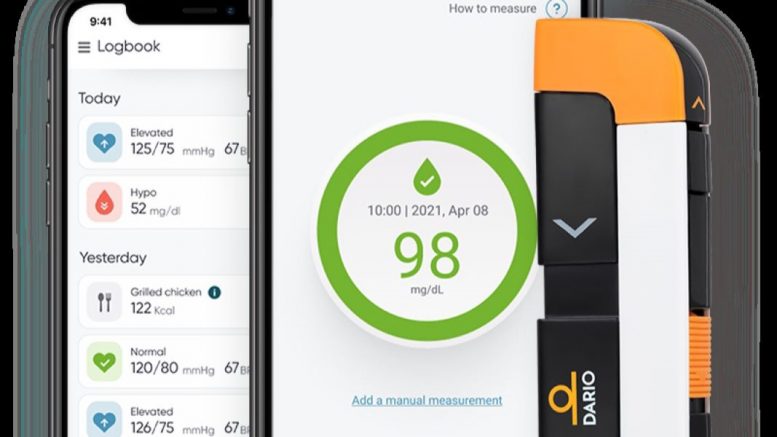Retrospective cohort study presented at the American Diabetes Association 83rd Scientific Sessions analyzed real-world data of Dario users against matched controls to demonstrate a greater reduction when compared to non-users who achieve a 1.8 point reduction with the usual standard of care
DarioHealth Corp. (“Dario” or the “Company”), a member in the global digital health market, presented research at the American Diabetes Association 83rd Scientific Sessions (the “Scientific Sessions”) demonstrating significant reductions in HbA1c for Dario users compared to non-users. The study was conducted by Sanofi U.S. (“Sanofi”) under its strategic agreement with Dario. The Scientific Sessions were held from June 23rd to June 26th in San Diego, CA.
Significant Improvements in HbA1c for Dario Users with Serious Diabetes
In an industry first, the analysis found statistically significant reductions in HbA1c compared to matched controls across real-world user data, including claims, for users and non-users of a digital health solution. Further analysis revealed that when baseline HbA1c reflected more serious diabetes the difference was even greater.
The analysis segmented study participants into four bands according to baseline HbA1c and analyzed HbA1c lab results for Dario users against a closely matched population of non-users over a period of six months. The matching process used included a unique factor: matching for motivation by selecting non-users who also had a similar HbA1c testing behavior under usual care with a physician.
The study demonstrated clinically significant differences in reductions in HbA1c for all Dario users compared to non-users, and those users with a baseline HbA1c greater than 9 points demonstrated the greatest improvement with a 2.3 point reduction in HbA1c in Dario users compared to a 1.8 point reduction for non-users.
Setting a New Standard for Digital Health Evidence Generation
This research study is the second set of end points published as a result of Dario and Sanofi’s ground-breaking collaboration to set new standards in digital health research by analyzing real-world digital health data using the evidence generation standards of a pharmaceutical study. The first set of end points examined economic impact, demonstrating a 9.3% reduction in all-cause Healthcare Resource Utilization (HCRU) with a 23.5% reduction in hospitalization, was presented at ISPOR in May 2023.
The new research presented at the Scientific Sessions used HIPAA-complaint deidentified patient data linking claims, electronic medical record and laboratory results data to construct a study cohort of 568 Dario users and 1,699 matched non-users.
“There is a growing need to bring higher quality evidence generation in digital health. We believe that Sanofi’s new research ensures Dario is leapfrogging others in the space in terms of quality of evidence as well as clinical effect sizes,” said Omar Manejwala, Chief Medical Officer of Dario. “With payers rightly demanding rigor in evidence for digital health solutions, this new evidence ensures that Dario is uniquely positioned to exceed these requirements.”
“These data broadly demonstrate a proof-of-concept for a digital health evidence generation platform that has combined the best attributes of real-world evidence studies and traditional randomized controlled trials,” said Felix Lee, Medical Head of Digital Healthcare, Sanofi. “There is tremendous potential for digital health interventions to complement usual care for people living with chronic conditions such as diabetes and we are proud to be collaborating with Dario to showcase the value of whole person care.”
This research is the first of several studies to be released based on this data analysis to demonstrate the impact of Dario on clinical, resource utilization and financial outcomes. To read more about this research, click here.
All data in the studies was collected following receipt of all required patient consents.

